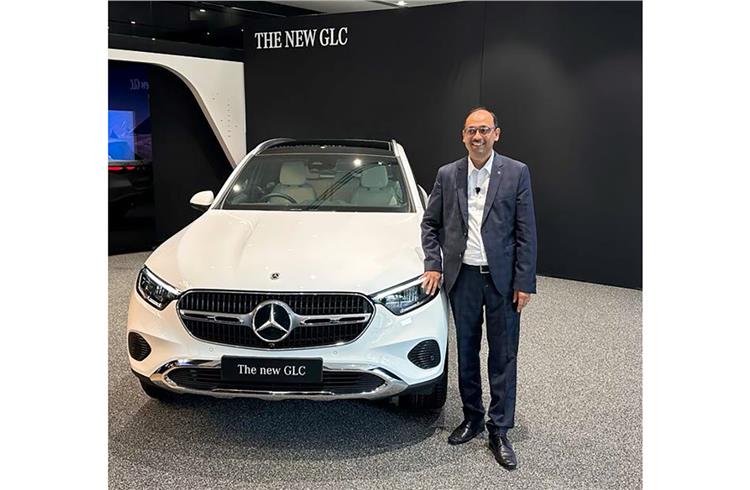Santosh Iyer, the MD of Mercedes-Benz India, predicts that India’s luxury car market will experience consistent double-digit growth over the next decade, outpacing the mainstream passenger vehicle market by 2-3%. A shift in perceptions towards luxury cars and a thriving economy are anticipated to elevate the market to new heights.
The luxury car segment in India, which achieved cumulative sales of 37,000 units in CY2022, is poised for robust expansion. Even a modest 10% CAGR could propel the market to double in size, reaching 80,000 to 90,000 units per annum by 2030.
Santosh Iyer emphasizes that a compounded annual growth rate of 10% is realistic and sustainable for the luxury car market. He notes that luxury market growth has outpaced the overall passenger vehicle market, expanding from 0.9% to around 1.1% of the total market share. The gradual but steady penetration of luxury cars is expected to continue on this upward trajectory.
This growth projection implies that the luxury car market’s penetration could potentially reach 1.5% to 1.8% of the broader Indian passenger vehicle market, as predicted by leading automakers Maruti Suzuki India and Hyundai Motor India, which anticipate the overall market to touch 5 to 6 million units per annum by 2030.
Post-Covid, the luxury car market has rebounded vigorously, growing almost twice as fast as the mainstream market due to a favorable low base. With the total market crossing the 20,000 units milestone in the first half of this year, an uptick in the second half driven by festive season demand is expected to push the luxury car market to a new high of 43,000 units this year.
Santosh Iyer identifies two critical elements for the industry’s future growth: economic development and cultural transformation. As India progresses toward a US$5 trillion economy with a youthful demographic, combined with cultural shifts in perception, a significant growth acceleration is expected post-2030.
Mercedes-Benz India, the country’s largest car manufacturer, has responded to surging demand by adding a third shift at its factory and expanding its product portfolio. The introduction of new models continues to drive momentum and sentiment in the luxury car market.
The luxury car segment’s rapid maturation is reflected in strong residual values, driving potential new car sales. Mercedes-Benz’s improved residual value is expected to stimulate replacement demand, with car replacement cycles shortening from 48-60 months to 36-48 months.
As luxury cars’ residual values increase, used Mercedes-Benz vehicles fetch higher prices in the market. This trend could potentially catalyze new car demand, fostering growth beyond the present double-digit trajectory.
In conclusion, India’s luxury car market is poised to witness substantial expansion, driven by changing perceptions, economic growth, and favorable market trends. As the market matures, strong residual values are expected to play a pivotal role in driving future replacement demand and sustaining the growth momentum.


